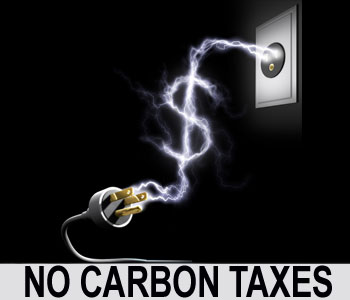BC: Carbon Taxes Falling Everywhere, Except Here

Forget NAFTA, the Trans-Pacific Partnership and the softwood lumber agreement. The first Canada-US deal has already been shredded in the post-Obama era, but its death has nothing to do with Donald Trump.
No, it was reliably tree-hugging Washington State voters who did the deed – killing a plan for a BC-style carbon tax in a landslide 59 per cent to 41 per cent vote on election night.
Once again, BC's "world-leading" carbon tax has been exposed for the sad, one-clown parade it really is. After eight years of British Columbians paying and paying and paying, still no North American jurisdiction has followed BC's lead and brought in a carbon tax. Prime Minister Justin Trudeau is now trying to force carbon pricing on the entire country, but several provinces are rightfully resisting.
The Washington carbon tax defeat essentially kills a 2013 climate agreement with BC and reinforces the competitive advantage our neighbours to the south enjoy. Just three years ago, that deal with Washington, Oregon and California was signed with much fanfare and promises by BC's environment minister that a North American west coast carbon tax was on its way. Unsurprisingly, it was just hot air.
Trudeau's reckless demand for a national carbon tax scheme will hamstring the Canadian economy. The Republican platform is crystal clear: “We oppose any carbon tax.” Now that the Grand Old Party controls the presidency, Senate and House, it’s clear carbon pricing is dead in the US in the near to mid-term.
Even the Clinton campaign knew better than to float a carbon tax, as an email from campaign manager Robby Mook, published by Wikileaks, explained: “To be clear: it's lethal in the general.”
Washington voters, the GOP and the Clinton campaign were right. A BC-style carbon tax, even with revenue neutrality, is pointless policy. The dirty little secret in BC is that greenhouse gas emissions have grown since the tax’s first full year (2009), and will shoot through the roof when the LNG industry goes live.
While GHGs dropped in BC in 2008, our former environment minister attributed two-thirds of that drop to the recession. Yes, the reason why BC lowered emissions wasn’t the carbon tax – it was a reeling economy.
This is important. The United States emits 14 per cent of the world's greenhouse gas emissions every year. China, which also refuses to tax carbon, produces 24.5 per cent. Yet, Trudeau is putting the Canadian economy and jobs at risk to try and reduce Canada's paltry 1.6 per cent of world emissions.
America isn’t bringing in a carbon tax. This keeps BC less competitive and puts an artificial drag on our economy.
As a caller to a prairie radio show quipped, Canada implementing a carbon tax is like you getting a vasectomy because your neighbour has too many children. You’re only punishing yourself.
Earlier this year, a company wanted to build a $300 million silicon smelter near Golden, creating 400 construction and 170 permanent jobs. The company instead decided instead to locate in Washington because energy costs there were so much less. Hiking BC's carbon tax, as Trudeau plans to force the BC government to do in 2021 and 2022, will only exacerbate that difference in cost. Donald Trump's America will benefit as we needlessly starve ourselves. Why?
Until China and the United States take greenhouse gas emissions seriously, Trudeau should cancel his carbon tax plan, and BC should repeal its tax (and its related tax credits), leaving only the individual income tax break in place. We wouldn’t be the only ones – France has abandoned their carbon tax plan, and Australia repealed theirs in 2014.
Better to grow our economy so we can put money toward mitigating the effects of climate change than punishing ourselves by pretending we can stop something over which we have so little control.